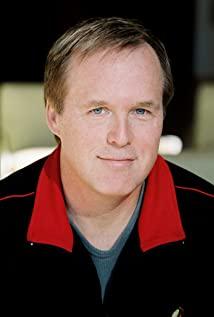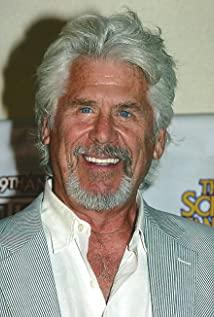Today, 70% of women in the Western world are engaged in full-time jobs and have their own careers
I remember that in the first TV interview 14 years ago, the stretch superwoman proudly said:
"I'm at the pinnacle of my career, leaving the opportunity to save the world to men? I'm not!"
14 years later, the elastic superwoman can finally realize her once bold words in a glorious manner-
Standing in the spotlight, he became a superhero spokesperson. Since then, he has been running on the road to save the world, stopping the train, fighting the villains, and saving mankind.
On the contrary, it is Mr. Super, who has been admired and arrogant. In this [Superman Story 2] , he has become a "Superman Daddy" with peace of mind.
With one hand on diapers and math problems on the other hand, my dad obediently led the home life of cooking and bringing a baby. The tasks were heavy and bitter.
Those trivial household chores are never easier than saving the world. This is also the time and energy of generations of women who sacrifice themselves and pay no attention to them.
"Who is from the mountains, rivers and lakes, but confined to the kitchen and love."
Suddenly remembering the lyrics of Wan Qing, walking out of the kitchen, it has become something that women have been striving for for a hundred years.
Female riveter Rossi was first sung in the song "Rosie the Riveter" of the same name:
She sits next to the fuselage/seriously overhauls/does better than a man/she works all day long/becomes part of the production line/she is making history/working for victory.
Electric welders, riveters, assemblers... these traditionally "male field" jobs open arms to women.
To say, it's still war .
For the first time, World War II, which occurred in 39 to 45, and the previous World War, was the first time that "professional women" had dominated the public image of women.
Men stepped onto the battlefield, and those vacant jobs, especially the most urgent munitions factories, had to consider hiring female workers.
Rosie the Riveter, the most famous poster in the history of American posters , was born at this time.
"We can do it!" The woman in blue overalls and a red headscarf showed her fists and muscles to her heart.
This cultural image triggered a social movement.
Thousands of women began to walk out of the bedrooms and kitchens to go to various jobs.
At that time, there was also a brochure for housewives across the country, which was distributed free of charge.
In this booklet called "Is there a job that belongs to me on the Victory Front" , more than 30 types of jobs and positions are introduced in detail.
In fact, it wasn't just the rivet workers and other industries. At that time, professional women began to cover almost every field of economic life.
At the beginning of the 20th century, there were only about 5 million working women in the United States. By the end of the 44th war, the number of working women had increased to 20 million.
For the first time, women workers wearing loose overalls, silk scarves and holding equipment have become the mainstream image of the entire society.
Not a mother, nor a housewife.
As for the United Kingdom and other European countries, as early as the 1920s during the First World War, there was already a process for women to go out of the private sector.
British scholar Riddle wrote:
British women are no longer the elegant ladies since the Middle Ages, they have transitioned from Ladies to Women.
Before World War I and World War II, women were not completely non-working.
In the agricultural society, the division of labor between men and women in the family was mostly in the private sphere, but in the industrial society, the workplace and the family began to separate, and the public and private spheres were separated .
In the early days of industrial society, men occupied all major labor positions almost from the beginning by virtue of their physical strength and thinking ability.
In the 1850s, professional women already accounted for 30% of the total number of workers, but among them, more than half of the female jobs were domestic servants .
Therefore, the changes brought to professional women by World War I and World War II are definitely revolutionary.
In the 1940s, there was a female star named Heidi Lamarr who was very popular in the movie [In Mystery] in Hollywood.
And her more important contribution was the development of a radio "frequency hopping technology" at the time. Simply put, it was the predecessor of today's WiFi technology.
But her research results have gone through many years of freezing, because the military at that time did not believe that an actress who sold sexy characters could do this .
They only say: "Since you love the United States, you should use your pretty face to help the government sell war bonds."
Got the truth.
Women riveters in wartime are only needed in wartime, they don't want you to do more.
After the war, the men came back, and there was nothing wrong with the women. It was time to give up their positions, and the women who occupied the magpie's nest became a crime.
So, in the 1950s, everything seemed to be back to square one.
The government re-advocated women's return to the family, and the "Daily Mail" daily advocated "being a happy housewife."
In the United States, the position of housewives once again occupies 75% of married women; in the United Kingdom, this number is 79%.
The most popular soap opera at that time was "I Love Lucy" , which tells the life of a housewife . All the joys, sorrows and joys of the people in the play cannot be separated from the kitchen and living room.
Outside the scene too, the women returned to the kitchen.
However, after a short period of wartime work, there is still something different.
In 1943, a 17-year-old girl named Norma Jane responded to the wartime call and entered a drone military factory as a female worker.
After the war, she never wanted to go back to her mediocre life as a housewife.
By chance, she embarked on the road of modeling, because her husband did not want her to show her face, the girl decided to divorce.
Then, from modelling to filmmaking, she changed her name to "Marilyn Monroe".
The later story is known, Monroe has become the most influential superstar; but if there is no turning point for the ordinary female worker, perhaps, she will always be a good wife and housewife.
In short, after the war, more and more women began to awaken their consciousness of pursuing themselves.
In the 1960s and 1970s, it entered a period of economic and social transformation, and the post-industrial society came.
With the background of the New Left and the Civil Rights Movement in full swing, the second wave of feminist movements finally broke out after being dormant for decades.
In 1964, the U.S. Congress passed the "Civil Rights Act", in which "prohibition of gender employment discrimination" was included;
In 65 years, the French decree on the emancipation of women's economic rights was promulgated. From then on, French women can open bank accounts on their own and participate in work without the permission of their husbands;
In 1966, the largest women 's organization in the West, the National Women's Organization, was established in the United States. Since then, they have been committed to enabling women to fully participate in mainstream social activities.
It can be said that it was Chapter 7 of the Civil Rights Act that opened the curtain on the rise of women in the American workplace, and a large number of women began to flood the job market.
The National Women’s Organization is the true pioneer and behind-the-scenes hero.
Since then, various mass women's organizations have sprung up all over the world, all of which have made great contributions to the fight for equal employment for women and other equal rights movements.
In the American drama "Mad Men" , which tells the story of the advertising industry in the 1960s and 1970s , there are many miniatures of the survival of professional women at that time.
The men in the office would secretly classify female secretaries as "Monroe type" and "Jacqueline type." Every female secretary who joins the job can not escape the fate of being classified.
And the so-called "woman secretary" is probably doing the simple job of serving tea and water;
Even if, like Joan, he can seize the opportunity, he is also called functional, but he is still hoped by the men to be just an office vase.
But after the second wave of women's liberation, women in the workplace still have some welcome signals.
In the original "Star Trek" at the end of the 1960s , there was the first black female character to hold an important position.
As the communications officer on the starship, Uhra is proficient in multiple languages, intelligent and savvy, independent and confident, and has turned the tide on many occasions in times of danger.
No longer a maid, not a secretary, not a nurse, but a professional commander with equal status with men.
Later, off-screen, she also served as a spokesperson for NASA astronaut recruitment, encouraging many American women to join the space industry.
In the [Washington Post] , the woman who withstood the pressure and risked the release of the Pentagon’s secret documents was also the woman Catherine Graham.
Although in the 1970s in the movie, when men talked about politics, women had to leave; although bankers did not trust women’s ability to work; although Catherine had to take over the job after her husband died.
But she was also the one who led the "Washington Post" to the pinnacle of international renown; it was also her who became the first female entrepreneur to be listed on the "Fortune" 500.
Director Spielberg said:
As the first female publisher of a mainstream newspaper, Graham drew a new career picture for women everywhere.
Therefore, in the 1980s, almost all the European and American worlds have entered a period of female employment boom. They have walked out of the kitchen, put on Armani shoulder pads "power suits", stepped on high heels, and entered the workplace.
Mike Nichols's [Working Girl] makes Sigourney Weaver, a girl from the [Alien] series, confident and high-spirited in the workplace.
From an ordinary female secretary, through seizing opportunities and using her talents, she became a company executive step by step. This story became a microcosm of the female workplace in the 1980s.
Although employment discrimination still exists, even occupational gender segregation is still serious until now; although different pay for equal work has always been a problem.
But at least, since the 80s, the era when Olamp de Guge was pushed to the gallows for publishing the "Declaration of Women and Women Citizenship" has truly gone.
Today, 70% of women in the Western world are engaged in full-time jobs and have their own careers;
Nowadays, the elastic superwoman can fight alone outside, run around and play cool, no one will accuse her of being a "stupid woman" who cares about her family.
-
Author/curl
The article was first published on the WeChat public account "Pocier"
View more about Incredibles 2 reviews











